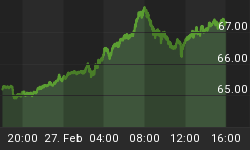U.S. Stock markets backed off from Tuesday's strong closes overnight as China took moves to limit lending in an attempt to slow down the economy. The news sent shockwaves through global equity markets as the Shanghai index dropped 3%. Traders are concerned that less spending from China will derail the global economic recovery.
Last night IBM reported strong earnings but this news couldn't carry the market. Investors may have been standing aside while awaiting the special election results from Massachusetts. The news that Republican Brown defeated the Democratic machine could pressure healthcare stocks, but insurance stocks may benefit if the current healthcare plan gets defeated.
Today could be a volatile day. The stronger Dollar indicates that investors are looking for lower yields and safety. This could weigh on higher yielding, higher risk assets like equities.
March Treasury Bonds and Treasury Notes are trading higher. Traders are driving down yields as they seek shelter from falling equity markets. If safety remains the theme throughout the day, then look for more appreciation in bonds and notes.
February Gold is down sharply. Stronger demand for the Dollar is putting pressure on gold. The charts indicate that a move through $1118.50 could send this market sharply lower. News that China is asking banks to limit loans could mean the end for excessive demand for precious and industrial metals.
March Crude Oil failed to follow-through to the upside after Tuesday's closing price reversal bottom. The pattern hasn't been negated, but there doesn't seem to be enough buying power to confirm a valid bottom. Currently this market is trading inside a retracement zone at 78.99 to 77.70. A slowdown in demand from China could put additional pressure on this market today.
The U.S. Dollar surged against most major currencies as investors sought refuge in lower-yielding currencies following the announcement by China that it was asking banks to curb lending for the rest of the month.
China's attempt to reign in bank lending is an attempt to put the brakes on a massive lending spree in an effort to cool the economy. The availability of easy money through government stimulus and favorable loan conditions helped fuel a huge surge in the Chinese economy. The pace of the growth is a concern for central bank officials. Tomorrow, China is expected to report double-digit 4th quarter GDP growth.
The Dollar also received a boost after Republican Scott Brown won a U.S. Senate seat in Massachusetts. Scott is expected to vote against the current healthcare plan which many feel was going to cause U.S. debt to go through the roof.
The combination of China's aggressive action with the Republican victory is expected to boost the Dollar while putting pressure on equities and commodities.
The March Euro continued its freefall on concerns over Greek debt issues. Overnight the move accelerated to the downside after International Monetary Fund Managing Director Dominique Strauss-Kahn said Greece's debt woes are "serious". Without any aid from the European Union, or the European Central Bank, look for Greece's debt issues to continue to mount.
European officials have stood their ground about providing financial help to Greece, saying that it is not their problem to solve. They also fear that providing aid will mean other countries such as Spain, Portugal and Ireland will begin lining up with their hands out in expectations of free money.
Technically, the March Euro broke through the December bottom at 1.4217, reaffirming the down trend on the weekly chart. The chart indicates that 1.3800 is the next major downside target, although 1.4000 may provide some psychological support. At this time, it looks as if the only event that can turn the Euro around will be if the EU or ECB provides help to Greece.
The March British Pound is trading sharply lower after support failed and Bank of England Governor Mervyn King issued a dovish comment about yesterday's higher than expected inflation report. Earlier losses were limited, however, after a report showed that the U.K. unemployment rate fell at the fastest pace since April 2007 in December.
Although the British Pound failed to form a closing price reversal top on Tuesday, it sold off, nonetheless, when a 50% support price at 1.6355 was violated. The chart indicates that 1.6175 is the next downside target.
Overnight the BoE's King said that Tuesday's reported spike in inflation was a short-term event and not likely to last. The cause of the surge in inflation was most likely the additional stimulus the BoE added in late fall.
The tightening of lending in China is likely to slow down the growth in the global economy and put pressure on higher yielding assets. This is helping to support the March Japanese Yen overnight as investors seek lower yielding assets and safety.
The March Japanese Yen is at a critical point on the charts. Although Tuesday's closing price reversal top was confirmed by a follow-through break last night, the lack of follow-through to the downside should be a concern to the bears. Yesterday's top was triggered by a strong recovery in U.S. equity markets. If U.S. stocks fall today, then the Japanese Yen is likely to take back yesterday's losses. Greater demand for the Yen should send the market up to its next major retracement target at 1.1273.
Yesterday the Bank of Canada left interest rates unchanged, but took measures to weaken the Canadian Dollar by increasing its asset-buyback program. Weaker stocks, gold and crude oil could put additional pressure on the Canadian Dollar.
Technically, a new main range has been formed in the March Canadian Dollar at .9303 to .9780. This sets up the next downside target at .9510 to .9461.















